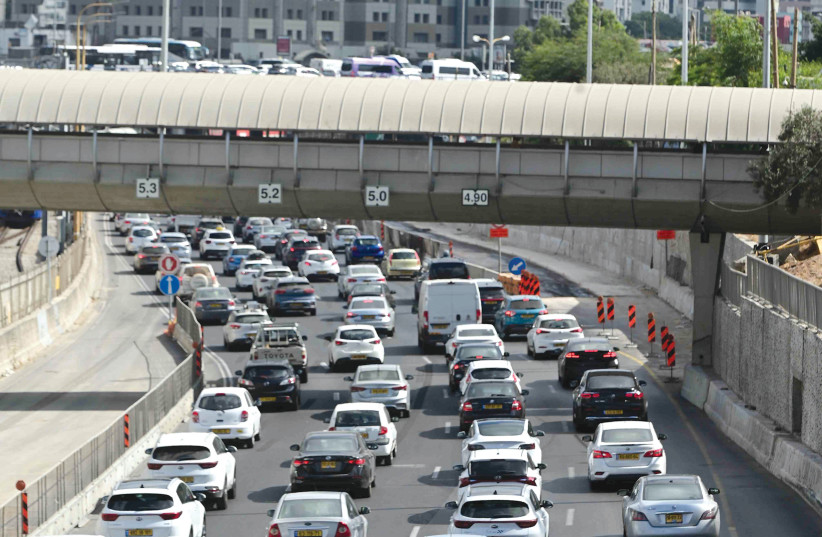Miri Regev is making a comeback in the important post of transportation minister, and experience shows that she can be the one to solve the traffic problems in Israel. Regev has set herself the goal of becoming a social minister, and now she can solve one of the most acute problems which affects the lives of Israelis – congestion on the roads.
Let’s say, you got on a train in Nahariya and got off in Tel Aviv – but you still have three kilometers left until you reach your destination. The term “the last mile” springs to mind, i.e., finding a solution to the problem of getting from the train station, for example, to your final destination using the public transport available.
The US and Europe have come up with a solution – public, shared vehicles and scooters, alongside traditional transportation. Here in Israel, in her previous term, Minister Regev encouraged a move toward adopting similar collaborative transport technologies as part of the solution.
The implementation of this idea may be the answer to creating an efficient, dynamic and convenient transport industry. Unfortunately, here in Israel, despite huge potential, there is still very little flexibility surrounding the customers’ needs.
Here are several steps that will help get Israel out of the endless traffic jams:

First, we must learn from Babel Dan’s experience. All in all, this is a groundbreaking project, but one whose costs reached as high as 84 NIS per passenger. This solution – at the taxpayer’s expense – is also ineffective, as it only adds more vehicles to the road. A comprehensive review of the existing transport network must be conducted, and the creative minds of entrepreneurs and the like, must then find a way to lighten the load through “sharing” or “cooperative” schemes available to the public.
The taxi is underrated
ONE OF the most underrated means of transportation is the taxi. The taxi lineup includes over 30,000 licensed taxi drivers. In Israel, unlike the rest of the world, a government committee is in charge of taxis and determines their rates (day/night, Saturday/holiday) which are calculated by the use of a meter.
Setting the rates on the basis of supply and demand will lead to lower travel prices and encourage usage. The smart meter, which came into use last year, will make this possible by allowing full synchronization between it and technological services, such as apps, and the Transportation Ministry.
The price can be lowered even further by encouraging shared taxi rides, something which already happens in most of the western world. Technological operators already have all the tools in place to enable them to implement this safely and efficiently.
Scooters and their problems
Smart, green transport, in the form of public, shared scooters are available in most major cities, including cities in Israel. These provide another solution to completing the “last mile” for travelers. Problems with scooters include a lack of regulation of public spaces, and a lack of regulation of privately owned scooters.
Although public scooters are available for everyone, regardless of age, both their speed and maintenance are regulated and supervised. These scooters are an effective solution to the “last mile” problem for many. The regulator, however, must ensure that safety is paramount and that all users know how to ride them properly.
Israel is becoming more and more crowded, and transport is becoming a big problem for everyone. We didn’t invent this; the whole world is dealing with similar problems. But we must strive to create sustainable and quick solutions in order to ease the burden on everyone.
Minister Regev, your success is our success – we are here to help and provide the best minds from our leading technology companies. We will provide all the tools to connect everyone in Israel, from the very north of the country to the most southern tip. All we require is a little cooperation on your part – and then change will come.
The writer is VP of governance and regulation at Yango.
